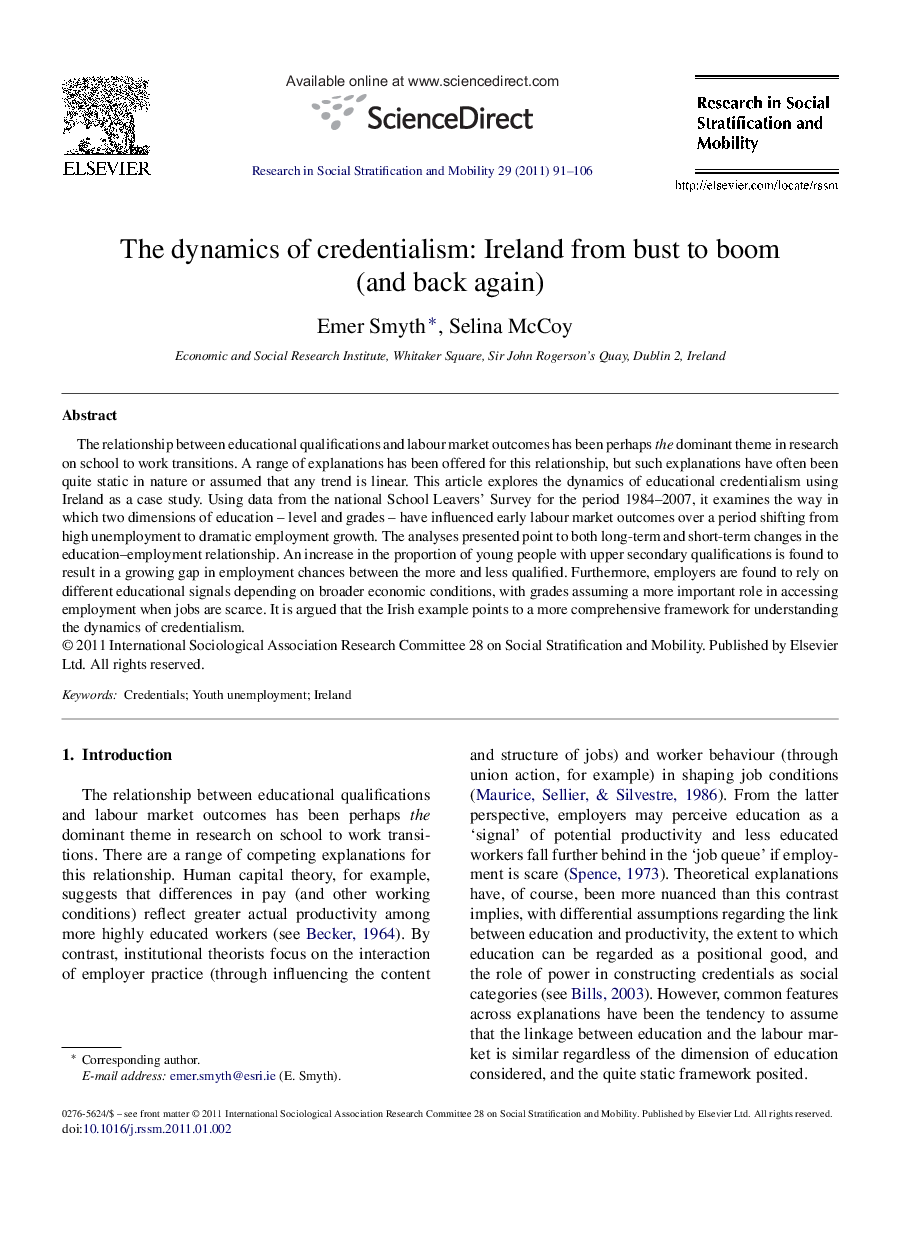| Article ID | Journal | Published Year | Pages | File Type |
|---|---|---|---|---|
| 998618 | Research in Social Stratification and Mobility | 2011 | 16 Pages |
The relationship between educational qualifications and labour market outcomes has been perhaps the dominant theme in research on school to work transitions. A range of explanations has been offered for this relationship, but such explanations have often been quite static in nature or assumed that any trend is linear. This article explores the dynamics of educational credentialism using Ireland as a case study. Using data from the national School Leavers’ Survey for the period 1984–2007, it examines the way in which two dimensions of education – level and grades – have influenced early labour market outcomes over a period shifting from high unemployment to dramatic employment growth. The analyses presented point to both long-term and short-term changes in the education–employment relationship. An increase in the proportion of young people with upper secondary qualifications is found to result in a growing gap in employment chances between the more and less qualified. Furthermore, employers are found to rely on different educational signals depending on broader economic conditions, with grades assuming a more important role in accessing employment when jobs are scarce. It is argued that the Irish example points to a more comprehensive framework for understanding the dynamics of credentialism.
